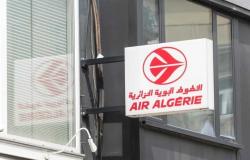How to check for the presence of wolf in Puy-de-Dôme ?
On October 23 and 24, in Marmilhat, theFrench Biodiversity Office (OFB) organized training for the wolf network / lynx. 35 people were trained, including farmers, but also OFB agents and wolf lieutenants.
From the collection of evidence of passage of the wolf at the passage of predator on the Auvergne landsit is time to take stock of the wolf at regional levelnational and European.
Also read: Farmers, foresters, hunters: same fight against the wolf
Presence of wolves in Puy-de-Dôme
The training was provided by two facilitators from the regional management of the unit Large terrestrial predatorsincluding Florie Bazireau and Gérald Goujon.
« The objective was to understand how the wolf/lynx network functions, to acquire knowledge applied to monitoring their population and to be able to collect signs of presence.», Indicates a farmer* from Pontaumur who followed the training.
Host Florie Bazireau adds:
This training allows you to become a correspondent for the wolf/lynx network. Their role is to collect signs of presence.
The wolf colonizes many departments, including Puy-de-Dômeleading to an increase in predation on herds. « Before, the wolf packs were found in the east of France, but there are more and more isolated wolves, which can travel widely, which are found in various areas, as far as Brittany. We also had a few visits to Puy-de-Dôme», continues the farmer.
Also read: A wolf attack at the Pompidou leaves around ten sheep killed or injured
Formally identify the wolf
Arrived from Italy, the wolf is back in France since the 1990s, after disappearing at the beginning of the 20th century. We count about 1,000 wolves on the national territory, and around 20,000 individuals in Europe.
In 2023, the Auvergne Rhône-Alpes region placed itself in 2nd position among the regions most affected by attackswith 3,322 animals killed (for 10,025 in France), just behind Provence-Alpes-Côte-d’Azur.
But it can be difficult to see clearly between the wolf attacksfoxes and dogs. Among the notable differences between the wolf and the dogthere is the modus operandi of the killing of l’animal : « A wolf grabs the sheep by the throat, so we find holes there. Then, he strips the noble organs (heart, lungs, viscera, etc.) and sets aside the rumen. Finally, he turns the wool inside out like you would turn a sock», explains the Pontaumurois.
Also read: Sheep found devoured in Grèzes
The end of compensation for farmers?
In order to reduce the pressure on the herds19% of the total wolf population can be collected every year in our country.
It is a strictly protected species. Farmers are currently compensated for damage caused by wolves. But if their status changes to a “protected species”, farmers could no longer be compensated.
This is what the farmer from Pontaumur explains to us, even though the subject has been on the European table for several months (see box below).
Asked about this, Florie Bazireau explains: “It's a hypothesis, yes, but it will be up to the Government to manage this part, if the protection status of the species evolves.».
* The farmer wished to remain anonymous.
Wolf protection: where are we?
Although European countries wish to lower the level of protection of the wolf, according to Florie Bazireau, there are several steps left before they achieve their goals: “At the European level, the wolf is classified in two texts: the Berne Convention and the “Habitats” directive. There is indeed a desire among EU countries to modify this status, but it will already be necessary to succeed in modifying these two texts. For the Berne convention, a meeting is planned for December 2. It will take a majority of votes for the wolf to be downgraded. Then, we will have to wait approximately 1 to 2 years before voting within the framework of the Habitats directive. This time, the countries signatories to the directive will have to vote unanimously for the status to be modified. If the change is made to both texts, French law will be able to follow and the wolf will then become huntable in our country. It may be slaughtered during certain periods, and not all year round with exemptions as is currently the case. Overall, this is a complex and very sensitive matter. »






